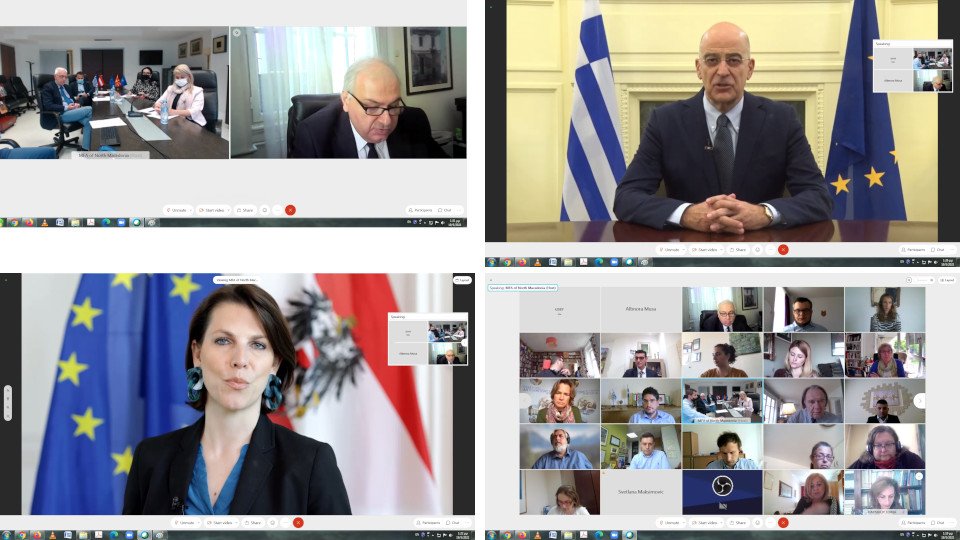On the 19th of May, 2021, the Hellenic Ministry of Foreign Affairs, the Federal Ministry for Europe, Integration and Foreign Affairs of Austria and the Ministry of Foreign Affairs of the Republic of North Macedonia jointly organised a multilateral educational Webinar titled “Practical implementation of the three Non-legally binding IHRA working definitions in multicultural societies: lessons learned, best practices, steps forward”.
The event took place in the framework of the IHRA full membership procedure that the Republic of North Macedonia is following. Greece and Austria are the leading countries of this process.
The Greek Minister of Foreign Affairs, Nikos Dendias, in his greeting statement to the Webinar, underlined Greece’s leadership in regard to IHRA’ non-legally binding working definitions which aim at combating Antisemitism, Holocaust denial and distortion, as well as Anti-Roma descrimination. He further pinpointed the primal importance of the educators’ efforts regarding new generations’ readiness to combat Anti-semitism and racism. “This is a noble enterprise by itself. It is, in a way, an act of self-defense, for our modern democratic societies and our free and dignified way of life”, Minister Dendias’ underscored.
On his part, Ambassador Chris Lazaris, IHRA Chair and Head of the Hellenic Delegation to IHRA, addressed the webinar participants underlying that the Greek Presidency of the IHRA 2021 has set education as its first priority, intending to devote the highest of its efforts aiming at the broadening and deepening of this field. In his speech, Ambassador Lazaris further emphasized the willingness and readiness of Greece to share relevant expertise with neighbours and friends and to encourage the strengthening of cooperation with them to prevent and fight Antisemitism.
Welcomed also by Bujar Osmani, Minister of Foreign Affairs of the Republic of North Macedonia, and Mrs. Karoline Edstadler, Minister for the EU and the Constitution at the Austrian Chancellery, the Webinar served as a fruitful platform for teachers and teacher’s trainers, as well as policy makers from South East Europe to discuss and exchange views on the practical implementation of the three non-legally binding IHRA working definitions, particularly in view of their use in the educational processes and in the everyday life, as well as on the role teachers and law enforcement agents should have in that regard. The event reflected on the lessons learned and best practices, and offered ideas for steps forward. Moreover, it emphasized the crucial importance of appropriate teacher’s training on the ways and means of teaching students about the three IHRA working definitions.
